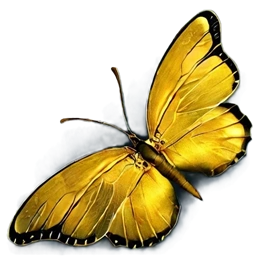When the Inundation began, there was a great political schism among the elves of Ljosalfar: many druids found the Inundation an unnatural upset of the natural balance of elements, and worked in vain to undo its effects. Others saw it as inevitable, and simply worked towards the survival of the elven species.
Knowing that natural resources such as wood would become scarce, the elves’ most triumphant success was in the twisting and warping of certain kinds of mangrove trees into a new form, living ships called mangals, a feat first accomplished by Curuvall Irdaor. The hull of a mangal consists of the tightly-sealed root systems and trunks of dozens of trees, with which it extracts nutrients directly from the seawater. A mangal usually has no sails (the copious leaf canopy of the mangal provides shade, but little resistance for the wind), and its movement (on those few occasions when movement is desired) is controlled by druids who direct the currents of the sea.
The elves gathered up as many live specimens of every animal that walked or nested on land, and many of these species still survive thanks to these efforts. There are a handful of fairly large mangals given over almost entirely to wilderness, guarded from poachers by skilled rangers and druids.
A mangal seedling is not watertight until it has grown to about the size of a six-person rowboat. If a mangal‘s hull is damaged, the damaged area must be patched with wood and tar - bark will grow to cover the patch, but this will take a number of years, depending on the size of the hole. A mangal continues to grow as long as it exists, and some of the most massive constitute floating cities with thousands of inhabitants and whole economies of their own.
The mangals are ruled from Myth Selu’Glaurach (population 90,000) by a loose Triumvirate of old, powerful individuals: the High Librarian (currently Lauren Norovathar), the High Druid (currently Nithari Eyeli), and the High Ranger (currently Nelare Voma, called the Fair), each appointed by their predecessor.
Each mangal is like a nation unto itself, but they all answer to Myth Selu’Glaurach. War between mangals is almost unheard of, and when an outside force threatens any small group of elves, a vast force of elves is likely band together to crush it.
The elves trade equally with humans, mixedfolk, tritons, merfolk, engineers, and locathah. There is a perpetual state of war between the elves and the sahuagin because of some perceived ancestral slight resented by the sahuagin, although neither side can afford to devote many resources to actually conquering the other. The kuo-toa raid the elves occasionally, but no higher-order animosity exists between them.
Myth Selu'Glaurach, the Great City of Books, is the oldest and largest of the mangals, where the druids shaped the first mangrove into a ship. Over the centuries, it has continued to grow, and is now many miles in size, and more like a floating city than a ship. This is where the druids study and rule and where new mangals are grown, but the most important part of the city is the grand library in the center which gives it its name. A copy of nearly every book and scroll that survived the Inundation can be found in the halls of the great library, and most of the books written since then. As the halls of the library have expanded with the mangal’s growth, so too has the library’s collection. It is by far the largest collection of books in the world; all others are private collections or the small libraries of temples and shrines, not even worthy of the comparison.
Each mangal (including Myth Selu'glaurach) is led by a captain. All captains are nominally equal in rank, and all answer to the Triumvirate, but in practice the captains of smaller mangals are also bossed around by the captains of larger ones.
Demographics[]
The various mangals have a total population of roughly 200,000, in the following proportions:
- 90% elves
- 5% half-elves
- 5% miscellaneous humanoids
Individual Mangals[]
- Myth Selu’Glaurach: Pop. 90,000
- Myth Rilislath'adon: Pop. 12,000
- Myth Alus'belath Ravan: Pop. 4200
- 44 Medium (town-sized) Mangals
- 660 Small (village- or hamlet- or ship-sized) Mangals
All items (1)
